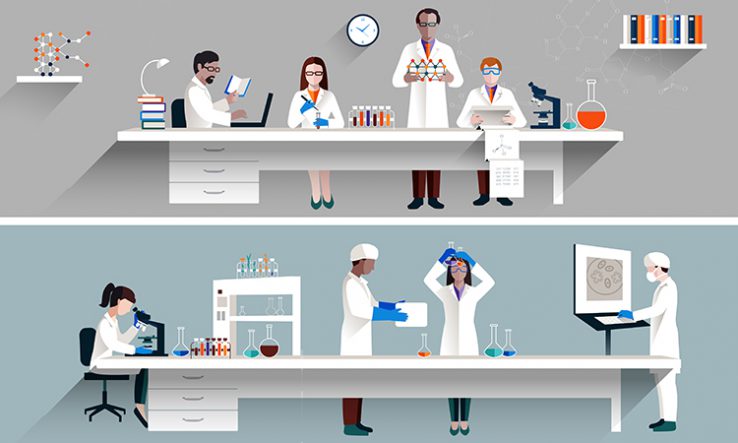Research careers
We are here to discuss research careers and how they can be a fulfilling and exciting option for those who are passionate about making discoveries and pushing the boundaries of knowledge. At a time when there is so much to discover and so many problems to solve, research careers are more important than ever before.
In this article, we will explore the various aspects of research careers, including the types of jobs available, the skills needed to succeed, the education and training required, and the benefits and drawbacks of pursuing a career in research.
Types of Research Careers
Research careers can be found in many different fields, including science, medicine, engineering, social sciences, humanities, and more. Some examples of research jobs include scientists, engineers, medical researchers, data analysts, and academic researchers. Research can also be done in the private sector, with jobs available at research and development (R&D) departments of large corporations.
Skills Needed for Research Careers
In order to succeed in a research career, there are a few key skills that are essential. These include critical thinking, problem-solving, attention to detail, creativity, and good communication skills. Researchers need to be able to analyze data, draw conclusions, and communicate their findings to others in a clear and concise manner.
Education and Training Required Research Careers
Most research jobs require a minimum of a bachelor’s degree, and many require a master’s or doctoral degree. In addition, internships or research assistant positions can be helpful in gaining experience and developing skills. Depending on the field, additional certifications or specialized training may be required.
Benefits and Drawbacks of Research Careers
One of the biggest benefits of pursuing a research career is the opportunity to make a significant contribution to the world’s knowledge and understanding. Researchers have the opportunity to discover new things, solve complex problems, and make a real difference in people’s lives. Additionally, research jobs can be intellectually stimulating and offer a high level of job satisfaction.
However, research careers also have their drawbacks. Research can be a slow and sometimes frustrating process, with many dead ends and setbacks along the way. Additionally, funding for research can be competitive and uncertain, which can create a stressful work environment.
Conclusion
Research careers can be a challenging but rewarding option for those who are passionate about making discoveries and advancing knowledge. With the right skills, education, and training, research jobs can offer a fulfilling and exciting career path. Whether you are interested in science, medicine, engineering, or any other field, there are research careers available that can allow you to make a significant contribution to the world.
Research careers in healthcare
- Registered Nurse – Registered nurses (RNs) are responsible for providing direct patient care, administering medication, monitoring vital signs, and collaborating with other healthcare professionals.
- Physician – Physicians diagnose and treat medical conditions, order and interpret diagnostic tests, and prescribe medication.
- Medical Assistant – Medical assistants are responsible for clinical and administrative tasks, such as taking patient histories, measuring vital signs, and assisting with medical procedures.
- Physical Therapist – Physical therapists help patients regain mobility, manage pain, and improve their overall physical function.
- Occupational Therapist – Occupational therapists help patients improve their ability to perform daily tasks, such as dressing, cooking, and driving.
- Speech-Language Pathologist – Speech-language pathologists diagnose and treat communication and swallowing disorders, such as stuttering, articulation problems, and aphasia.
- Physician Assistant – Physician assistants work under the supervision of a physician to provide medical care, diagnose and treat illnesses, and order and interpret diagnostic tests.
- Medical Laboratory Technician – Medical laboratory technicians perform tests on patient samples, such as blood and urine, to help diagnose and treat medical conditions.
- Radiologic Technologist – Radiologic technologists use imaging equipment to produce images of the inside of the body for diagnostic purposes.
- Health Information Technician – Health information technicians manage patient medical records, ensure patient privacy, and maintain electronic health records.
